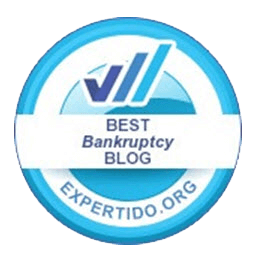If you are facing bankruptcy, you can expect it to affect your credit score, but all is not lost. There are steps you can take to limit the effects and to build your credit back up after filing. An experienced South Carolina bankruptcy attorney can not only help you get out of overwhelming debt through bankruptcy but can also help you protect and restore your credit score in the process.
Your Credit Score
Your credit score is considered a predictor of how you handle debt. As such, creditors look to credit scores to predict how likely potential borrowers are to pay loans back on time. The higher the score, the lower the risk involved for the creditor and the more likely the borrower is to obtain favorable terms. In other words, your credit score directly affects your ability to bolster your financial reach and is important to your financial future.
The Effects of Bankruptcy
Your credit score can take a hit with bankruptcy, and the higher your score, the more points you’re likely to lose. This said, however, the lower your credit score, the fewer points you have to lose and bankruptcy can often put you in a better position to rebuild a poor credit score by eliminating all of your bad debt.
The Benefits of a Solid Credit Score
Having a high credit score comes with all the following benefits:
- It’s easier to obtain credit when you need it.
- Your credit terms are likely to be more favorable.
- It opens up your options in terms of renting a home.
- It can improve your car insurance terms.
- It can significantly improve your mortgage terms, which translates to decades of savings.
Chapter 7 vs. Chapter 13 Bankruptcy
Whether you choose a Chapter 7 or Chapter 13 bankruptcy will play a role in how seriously your credit score is affected.
Chapter 7
Chapter 7 bankruptcy is a liquidation process that discharges – or erases – unsecured debts. Because filers generally don’t have enough nonexempt assets to cover their unsecured debts, the excess debts are discharged, which means the debtor isn’t required to pay them off. A Chapter 7 bankruptcy will remain on your credit report for up to 10 years, and because Chapter 7 doesn’t require repayment, it’s likely to take a bigger bite out of our credit score than Chapter 13 is.
Chapter 13
Chapter 13 bankruptcy is a reorganization plan that generally involves repaying at least some of your debt. As a result, the amount of time it remains on your credit score is shortened to a period of up to seven years. The payment history associated with your Chapter 13 bankruptcy can also bolster your creditworthiness in the eyes of future lenders.
Don’t Wait to Call an Experienced South Carolina Bankruptcy Attorney
The formidable South Carolina bankruptcy attorneys at Reed Law Firm appreciate how negatively bankruptcy can affect your credit and are committed to helping you do as little damage to your score as possible while effecting favorable terms that help you resolve your debt concerns. We’re standing by to help, so please don’t hesitate to contact us online or call 803-855-1774 in Columbia, South Carolina, or at 843-418-9004 in Florence, South Carolina, today.


